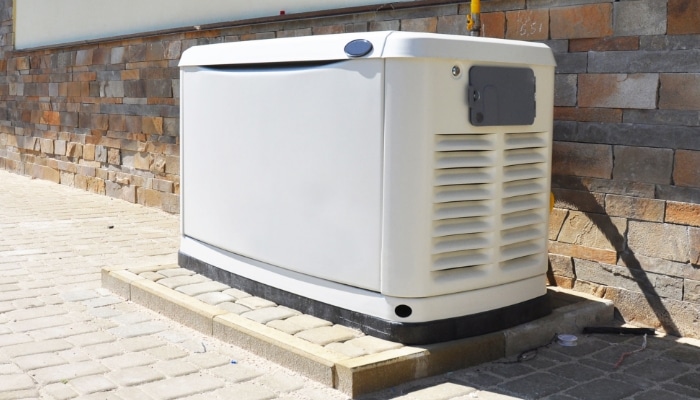
Have you thought to yourself, “how does a home backup generator work?” Look no further, our experts at Dustin’s Mechanical can walk you through how any kind of home generator works! As we explore the inner workings of these essential devices, we’ll delve into the various types of home generators, their fuel sources, and factors to consider when purchasing one.
When you’re ready to install a new generator or simply talk about your options, contact Dustin’s Mechanical online or call 609-488-6353 to schedule a consultaiton as we offer expert advice on home generators.
Understanding Home Generators and Their Benefits
Home generators are backup power systems that provide electricity during unexpected power outages. They offer numerous benefits, such as ensuring continuous power supply to critical appliances and keeping your family safe and comfortable during emergencies. Home generators can be a lifesaver for regions prone to severe weather, natural disasters, or frequent blackouts.
Types of Home Generators
Home generators come in different types, but the most common ones are portable generators and whole-home generators.
- Portable Generators: Portable generators are versatile, easy to move, and popular for powering devices during camping, outdoor events, or power outages. They run on gasoline, come in various sizes, but have limited capacity for running an entire home or high-demand appliances long-term.
- Whole-Home Generators: Whole-home generators are permanent fixtures that power your entire home during outages. Unlike portable generators, they connect to your home’s electrical system and activate automatically when the main power is disrupted, restoring power within seconds. Available in various capacities to match your energy needs.
Features of Home Generators
Home generators are essential devices for providing uninterrupted power during outages. They offer automatic activation, seamless integration into your electrical system, and come in various capacities to match your energy needs. Running on natural gas or propane, they include safety features and some even offer remote monitoring capabilities for added convenience. Choosing the right home generator ensures reliable power supply during unexpected situations.
How Does a Home Generator Work?
Every generator works a little bit differently depending on the fuel type it utilizes and the composition of the system. Understanding the differences between the types of generators may be helpful to consider if you’re thinking about installing one for your home.
- Gasoline Home Generator: Gasoline generators are typically portable and affordable. They operate by igniting gasoline using a small engine. Although they are readily available, gasoline generators might not be the most efficient choice for prolonged power needs due to their limited runtimes and higher fuel consumption.
- Propane Home Generator: Propane generators utilize propane gas stored in tanks. They offer cleaner emissions and more extended runtimes compared to gasoline generators. Propane generators work by vaporizing the fuel, mixing it with air, and igniting the mixture in the engine’s combustion chamber.
- Natural Gas Home Generator System: Natural gas generators are directly connected to your home’s natural gas supply. They have a continuous fuel supply and offer low emissions and quiet operation. The engine works similarly to a propane generator, using a gaseous mixture of natural gas and air for combustion.
- Diesel Home Generator: Diesel generators are known for their durability and efficiency. They rely on diesel fuel, and like other internal combustion engines, the fuel-air mixture is compressed, and combustion occurs. These generators are suitable for heavy loads and extended use.
What to Consider When Buying a Home Generator
Now that we’ve answered the common question, “how does a home generator work?” you may be wondering what generator best suits your home. Before investing in a home generator, consider the following factors:
- Power Capacity: Determine the wattage needed to power essential appliances and devices during an outage.
- Fuel Type: Choose a fuel type based on availability, environmental impact, and your power needs.
- Automatic vs. Manual Start: Automatic start generators detect power loss and start automatically, while manual start ones require user intervention.
- Transfer Switch: Ensure the generator comes with a transfer switch to safely connect to your home’s electrical system.
- Noise Level: Consider noise levels, especially if you live in a noise-restricted area.
- Maintenance Requirements: Research the maintenance needs of the generator and opt for one with straightforward upkeep.
Ensuring Uninterrupted Power Supply with a Home Generator
Whole home generators are crucial devices that provide peace of mind and comfort during power outages. Understanding the various types of generators, their fuel sources, and their working mechanisms allows you to make an informed decision when purchasing one. Whether you opt for a gasoline, propane, natural gas, or diesel home generator, you’ll be safeguarding your home and loved ones from unforeseen power interruptions, ensuring a continuous power supply when you need it the most.
Invest wisely in a home generator, and stay prepared for any emergency.





